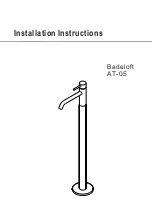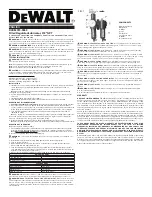
0. Introduction - Specifications
14
Workshop Service Manual for CENTORA 7280-7282 Combine Range - EN_D3111800M2
Hearing protection
•
Loud noise can damage your hearing, with the extent
of the damage increasing with volume. If you think
there is too much noise, wear hearing protection.
Hand protection
•
The prior application of barrier creams is advised to
prevent irritation and blackening of the skin. Wash
your hands in soap and water after finishing work. Sol-
vents such as white spirit, paraffin, etc., can damage
the skin.
•
Wear gloves whenever possible in order to protect
your hands. You must NOT wear rings or wrist-
watches when working on the machinery, as these
items can be caught in moving parts and cause seri-
ous injury.
Foot protection
•
Strong or protective footwear with reinforced toecaps
(safety shoes) can protect your feet from falling
objects. Oil-resistant soles will also help stop you slip-
ping.
Safety clothing
•
It may be necessary to wear flame-retardant or acid-
resistant clothing for certain types of work.
0.4.7
Considerations with regard to equip-
ment
Machine guards
•
Before using a machine, you must check that the
machine’s guards are in place and functional. These
guards not only prevent parts of the body or clothing
from coming into contact with the machine’s moving
parts, but also stop objects that might fly off the
machine and cause injury. Make sure that any missing
guards are replaced.
Lifting equipment
•
Always make sure that lifting equipment such as
chains, slings, lifting bars, hooks and eyes are
inspected thoroughly before use. If you are in any
doubt, choose stronger equipment than necessary.
•
You must never stand under a suspended load or
raised implement.
•
Avoid injury as a result of components being handled
incorrectly. Make completely sure that you can lift the
object. If you are in any doubt, seek help.
Lifting with a jack
•
Choose a jack that is strong enough to take the load.
•
Stabilise the combine and chock up the wheels.
•
Position support stands under the combine. Lower
the jack and allow the combine to rest on the stands.
•
You must NOT go under a combine that is being sup-
ported by a chain hoist or jack.
Compressed air
•
The pressure from a compressed air hose will often
be up to 7 bar. This is completely safe if used cor-
rectly. Any misuse can cause injury.
•
You must never use compressed air to blow dust, fil-
ings, dirt, etc., away from the area being worked on
unless the right type of nozzle is fitted and safety
glasses are being worn.
•
Compressed air is not a cleaning agent and only
moves dust, etc., from one place to another. Look
around you before using a compressed-air hose, as
onlookers may get grit in their eyes, in their ears and
on their skin.
•
Use approved air guns, safety glasses and suitable
screening to protect other people in the area being
worked on.
•
You must never point an air nozzle at another person.
Hand tools
•
Many cuts, abrasions and injuries are caused by
defective tools. You must never use the wrong tool
for the job, as this generally results in either injury or
poorly executed work.
•
You must never use:
•
A hammer with a loose head or cracked handle.
•
Adjustable spanners, etc., with jaws rounded through
wear or otherwise in a worn condition.
•
Spanners or files as a hammer, or bits, split pins and
bolts as a punch.
•
Grind convex heads of chisels. The sharp edges can
tear your skin if the tool slips. And when you strike the
tool, chips can break off and fly into your eye.
•
Make sure that you have a handle on every file to pre-
vent the blade from going through your palm or wrist
if the file were to slip or catch.
•
For removing or changing hardened pegs, use a cop-
per or brass punch rather than a hammer.
•
The recommended special tools must always be used
for dismantling, inspecting and joining large compo-
nents.
•
They will help reduce the time and effort required to
carry out the work and minimise repair costs.
•
Always keep tools clean and in good condition.
Electricity
•
Electricity has become so common in everyday use
that its potential dangers are frequently overlooked.
Misusing electrical equipment can have lethal conse-
quences.
•
Before using electrical equipment, especially portable
devices, you must check that the cable is neither
worn nor frayed and that plugs and sockets, etc., are
intact. Make sure that you know where the nearest
switch is located. Always use an electric cable with an
earthed 3-pin plug.
0.4.8
General considerations
Solvents
•
Only use cleaning fluids and solvents that are known
to be safe. Some types of fluid can damage compo-
nents such as seals, etc., and cause skin irritation. The
labels on solvents should be read in order to make
sure not only that they are suitable for cleaning the
components and individual parts, but also that they
will NOT endanger the personal safety of the user.














































